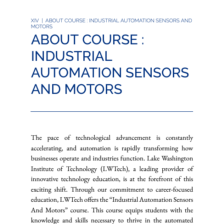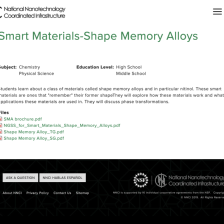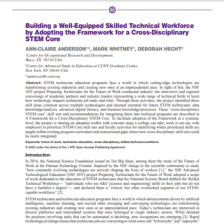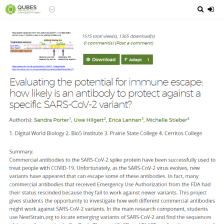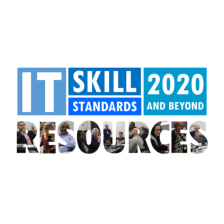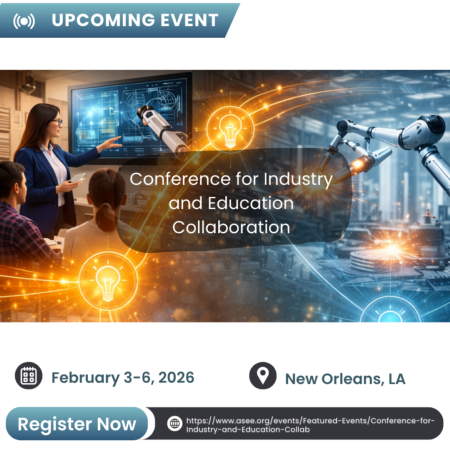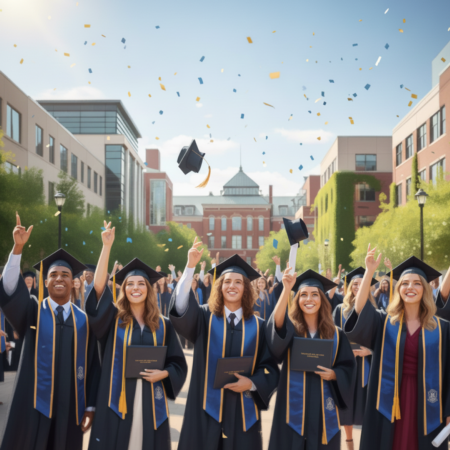ATE is Advanced Technological Education. With an emphasis on two-year colleges, the National Science Foundation's ATE program focuses on the education of technicians for the high-technology fields that drive our nation's economy.
Hawaii International Conference on System Sciences
Conference
January 6 Lahaina, HI
Since 1968, the Hawaii International Conference on System Sciences (HICSS) has been known worldwide as the longest-standing working scientific conferences in Information Technology Management. HICSS provides a highly interactive working environment for top scholars from academia and the industry from over 60 countries to exchange ideas in various areas of information, computer, and system sciences. According to Microsoft Academic, HICSS ranks the 36th in terms of citations among 4,444 conferences in all fields worldwide.
(View More)
Manufacturing Celebration of Innovation
Meeting
January 8 Hartford, CT
Showcasing the 2025 Coolest Thing Made in Connecticut Competition. Explore the Coolest Thing Made in CT exhibit, celebrate the ingenuity of Connecticut manufacturers, and connect with industry professionals in the dynamic settings of the Invention Dimension and Exploring Space exhibits.
(View More)
Scouting America Badging Day
Student Event
January 10 Thief River Falls, MN
Scouting America Merit Badge Day will be held at Northland Community & Technical College. Scouts will have the opportunity to participate in a variety of engaging classes, including Aviation, First Aid, Welding, Law Enforcement, and Citizenship in the Nation. This event is designed to give Scouts hands-on learning experiences while working toward their merit badges.
(View More)
KidWind - Wind Energy 101
Workshop
January 10 Online
Join for this wind-focused, three-hour virtual workshop to explore the science of wind power!
During this virtual workshop, educators will learn the foundations of wind power including the science and technology of wind turbines and blade design. Presenters will also introduce activities for the classroom that engage students in dynamic, hands-on energy-based learning.
Registration closes December 27th so you receive materials prior to the workshop.
(View More)
CONNEX Update: With Special Guest Kirti Patel, CMO
Webinar
January 15
Join Chief Manufacturing Officer Kirti Patel for this informational webinar on new additions to the CONNEX platform. CONNEX Connecticut is an online platform that connects all U.S. manufacturers and suppliers with a single, accurate, and searchable supply-chain solution.
In this webinar, talk about:
- CONNEX Marketplace Site Updates: Hear about new features and functionality recently added
- Workforce Module: Introducing CONNEX Marketplace’s Workforce Module. This module provides access to workforce organizations and educators that shape and develop the next generation of Connecticut’s manufacturing workforce.
(View More)
Generative AI and Microsoft Copilot Training for Community College Faculty and Staff: 101
Webinar
January 15
This session is designed for community college faculty and staff exploring the fundamentals of Generative AI and Microsoft Copilot. Topics include Generative AI and responsible AI use, effective prompting techniques, and real-world applications in education. This session will provide practical insights and hands-on guidance to help integrate AI tools into your work.
(View More)
NCyTE Monthly Meeting: Evaluating CAE Cybersecurity Career Outcomes
Webinar
January 16
Join NCyTE’s January Monthly Meeting where Dr. Tobi West will share her research into how well Centers of Academic Excellence in Cybersecurity (CAE-C) programs prepare students for cybersecurity careers.
The session will highlight findings from a ten-month study involving 281 students from 36 colleges and universities across the U.S. The research examined the types of cybersecurity jobs CAE alumni secured after graduation and assessed how closely those positions align with the 52 cybersecurity work roles defined in the recently updated NICE Workforce Framework for Cybersecurity (NIST).
Presenter: Dr. Tobi West
(View More)
Google's Generative AI Leader Training and Certification
Meeting
January 16 Online
Become one of the first go-to resources and thought leaders in Generative AI Leadership, enhancing your visibility and influence within the organization. This no-cost opportunity, funded by Google Cloud’s Career Launchpad, and in collaboration with NAAIC, will prepare community college faculty for the Google Cloud Generative AI Leader certification.
The training will cover:
- Fundamentals of Gen AI
- Google Cloud's Gen AI offerings
- Techniques to improve Gen AI model output
- Gen AI business strategies
Training sessions
Session 1: January 16, 2026, 10 to 4:30 PM EST, online
Session 2: January 23, 2026, 10 to 4:30 PM EST, online
Office hours (optional): January 30, 2:30 to 4 PM EST, online
Certification exam deadline: January 31, 2026
(View More)
Octet Bio-Layer Interferometry: Accelerating Breakthroughs in Biologics Development
Webinar
January 16
Discover how Octet Bio-Layer Interferometry (BLI) is transforming the landscape of biologics research and development. In this webinar, Dr. Rodrigo Jacamo will showcase the unmatched capabilities of Octet BLI in streamlining workflows across cell line development, antibody discovery, drug development, cell therapy, and gene therapy. Whether you're optimizing clone selection, characterizing binding kinetics, or accelerating therapeutic screening, Octet BLI delivers real-time, label-free analysis with exceptional sensitivity and throughput.
Learn how leading scientists are leveraging Octet systems to reduce timelines, increase data confidence, and make faster decisions in critical stages of development. Experts will walk you through application-specific case studies, demonstrate assay versatility, and answer your questions live.
(View More)
SPIE Photonics West 2026
Conference
January 19 Online
SPIE Photonics West is the premier event for lasers, biomedical optics, optoelectronics, and technologies supporting biophotonic, quantum, and vision applications.
View the lineup of outstanding plenary speakers from around the globe. Select advanced training from 60 course options. Discuss your product requirements with top optics and photonics suppliers at any of the five exhibitions throughout the week, and participate in the strong industry program – this year now on three stages!
(View More)
Generative AI and Microsoft Copilot for Community College Faculty: 102
Webinar
January 20
This follow-up webinar is designed for faculty looking to integrate Generative AI and Microsoft Copilot into their curriculum. We'll start with a brief review of Copilot Chat, then explore practical strategies for incorporating AI-driven tools into lesson plans. We'll also examine real-world use cases from various disciplines.
(View More)
Generative AI and Microsoft Copilot for Community College Faculty: 102
Webinar
January 20
This follow-up webinar is designed for faculty looking to integrate Generative AI and Microsoft Copilot into their curriculum. We'll start with a brief review of Copilot Chat, then explore practical strategies for incorporating AI-driven tools into lesson plans. We'll also examine real-world use cases from various disciplines.
(View More)
Community Capabilities Webinar | The NCERC Experience
Webinar
January 21
The National Corn-to-Ethanol Research Center (NCERC) at Southern Illinois University Edwardsville is a nationally recognized Biorefining Center of Excellence dedicated to advancing the commercialization of biofuels, biochemicals, biomaterials, and other bio-based products. NCERC offers a comprehensive range of workforce development programs, including job shadowing, internships, graduate assistantships, and visiting research fellow programs, as well as professional workshops. Through the various programs, trainees gain real-world experience inside a functioning biomanufacturing pilot plant and are equipped with the skills needed to lead in a rapidly evolving biobased economy.
(View More)
ATE Projects and Centers
Advanced Manufacturing Technologies topics include:
- Additive manufacturing
- Automotive manufacturing
- General manufacturing
Agricultural and Environmental Technologies topics include:
- Agriculture and aquaculture
- Environmental technologies
- Natural resources
- Nuclear power
- Solar energy
- Wind power
Bio and Chemical Technologies topics include:
- Biotechnology
- Chemical and process technologies
Engineering Technologies topics include:
- Electronics and controls
- General engineering
- Marine technologies
- Materials technologies
- Optics
- Space technologies
General Advanced Technological Education topics include:
- Evaluation
- Learning research
- Recruitment
- Teacher preparation
Information and Security Technologies topics include:
- Geospatial technologies
- Information and communications technologies
- Logistics
- Security, information assurance, and forensics
Micro and Nanotechnologies topics include:
- MEMS
- Microsystems
- Semiconductors
This 219-page textbook, created for the ELCT 241: Introduction to Industrial Automation course at Lake Washington Institute of Technology, covers concepts related to motors and sensors found in an industrial environment. The course familiarizes students with industrial automation through the study of motors and censors, equipping students with "the knowledge and skills necessary to thrive in the automated workplace of tomorrow." Also included are review questions for various sections. The textbook consists of the following parts:
- Fundamentals of Sensors
- Load Sensors and Pressure Sensing Technologies
- Temperature, Flow Control, and Vision Sensors
- DC [direct current] Motors
- Stepper Motors
- AC [alternating current] Motors
Upon completing this course students should be able to do the following:
- Implement and manage automated systems
- Analyze data and optimize processes
- Troubleshoot and maintain automated equipment
- Communicate affectively within an automated work environment
(View More)
This experiment, presented by the National Nanotechnology Coordinated Infrastructure, covers Shape Memory Alloys or Smart Materials. A Smart Material or Shape Memory Alloys belongs to a class of materials which displays the shape memory effect (SME); they possess the ability to radically change crystal structure or phase at a distinct temperature. The lab will "explore how smart materials work and what applications these materials are used in." Additionally, students will be provided with a brief history lesson about the origins of smart material. The experiment is quite fun, students will observe how smart materials can "think and do amazing things." A student and teacher guide is provided with the lab.
(View More)
This issue of J ATE, published by Portland Community College, focuses on the theme of professional engagement. J ATE is a peer-reviewed technical journal focused on community college faculty and staff who work with technician education. This journal is cross-disciplinary and encompasses all technologies under the National Science Foundation (NSF) Advanced Technological Education (ATE) Program. Some of these technologies include: Micro Nano, Biotechnology, Autonomous Technology, Cyber Security, Advanced Manufacturing, Earth Sciences, Agriculture Technology, Energy, and Welding. Some topics that cross cut across all disciplines of technician education are also covered. Those topics include: Evaluation, Mentoring, Undergraduate Research, and Applied Technician Research.
This 108-page issue of J ATE includes 11 full articles and five guest letters written by ATE professionals. Listed below is each article and corresponding DOI number in parentheses.
- Building a Well-Equipped Skilled...
(View More)
In this activity, provided by Digital World Biology, students use free, online biotechnology resources to investigate how well different commercial antibodies might work against SARS-CoV-2 variants. Students will first use NextStrain.org to locate and detect the spike proteins of emerging SARS-CoV-2 variants. Next, they will "use iCn3D and BLAST to align the sequence of the variant spike protein to a sequence of a spike protein that is bound to a commercial antibody." After identifying mutations in the antibody binding site, students will then compare "chemical bonds that would be formed between the original amino acid and the antibody with the predicted bonds that could be formed by the variant amino acid and predict whether their antibody will be effective against their variant."
Included is a 3-page instructor guide detailing each step of the activity, a 2-page student instructional sheet, activity materials, such as data spreadsheets, and an informational video on using...
(View More)
This 172-page resource was developed as a reference guide for the IT Skill Standards 2020 and Beyond project grant, explaining in step-by-step detail how to collaborate with employers to develop future-facing technical skill standards and then use that work to align curriculum to workforce needs. This guide also provides a hard copy of the final version "products" the grant created (KSA+Ts - knowledge, skills, abilities, and tasks, key performance indicators, employability skills, student learning outcomes, and degree expectations).
A companion report on the impacts and outcomes of the ITSS project is available to view separately.
(View More)
| Active ATE Centers | 15 |
| Active ATE Projects | 289 |
| ATE Resources | 6,993 |
| New Projects/Centers | 62 |
| New Resources | 58 |
ATE Resources by Subject Area
ATE Events by Subject Area
Upcoming Event: Conference for Industry and Education Collaboration (CIEC)
The 50th annual American Society for Engineering Education (ASEE) Conference for Industry and Education Collaboration (CIEC) will take place February 3–6, 2026, in New Orleans, Louisiana. Organized by ASEE’s Cooperative and Experiential Education Division (CEED), College Industry Partnership Division (CIPD), Continuing, Professional, and Online Education Division (CPOED), and Engineering Technology Division (ETD), the conference brings together educators, government representatives, and industry professionals to build effective and sustainable partnerships.
Attendees will be able to engage in poster sessions, workshops, training programs, keynote presentations, and panel discussions. The theme for 2026 is “Transforming Tomorrow Together.”
For more information or to register, visit ASEE’s website.
(View More)
NSF Announces $30 Million Investment in STEM Research Centers
The U.S. National Science Foundation has announced a $30 million investment to establish NSF EPSCoR Centers of Research Excellence in Science and Technology (CREST) across the states of Montana, Idaho, and Louisiana. These new centers will seek to expand research efforts, deepen STEM knowledge, and strengthen workforce development in priority areas, including semiconductors, nanotechnology, and biotechnology.
EPSCoR CRESTs will act as research hubs that also aim to attract and prepare more students for careers in STEM disciplines.
- Montana: Montana Technological University will launch a center focused on converting local biomass, such as beetle-killed trees, into biochar and renewable energy sources.
- Idaho: Boise State University will establish the a center integrating semiconductor science into classroom experiences to advance workforce preparation.
- Louisiana: Lousiana State University (LSU) New Orleans and Shreveport will create centers for adaptive nanotechnology and biotechnology.
To learn more about this recent investment, visit NSF's website.
(View More)
New Research: Dual Enrollment Experience Shows Increased College Completion Rates
A new analysis from the National Student Clearinghouse (NSC) Research Center highlights the continued influence of dual enrollment on college completion, particularly within community colleges.
For the 2019 cohort at public two-year institutions, students who entered with dual-enrollment credits achieved a six-year completion rate of 57%, far outpacing the 39.6% rate of those without early college coursework.
Despite the strong outcomes among dual-enrollment students, the national six-year completion rate for community colleges held at 43.9% for the most recent cohort, matching the previous year's. This still represents an increase from 2008 levels.
To explore additional breakdowns by state, demographic group, and enrollment status, view NSC Research Center's full report.
(View More)

 List
List